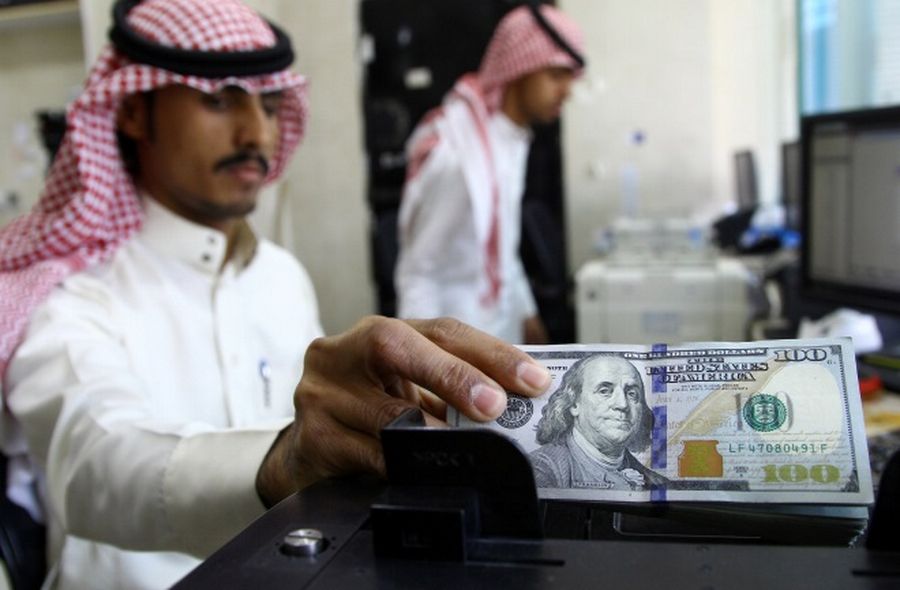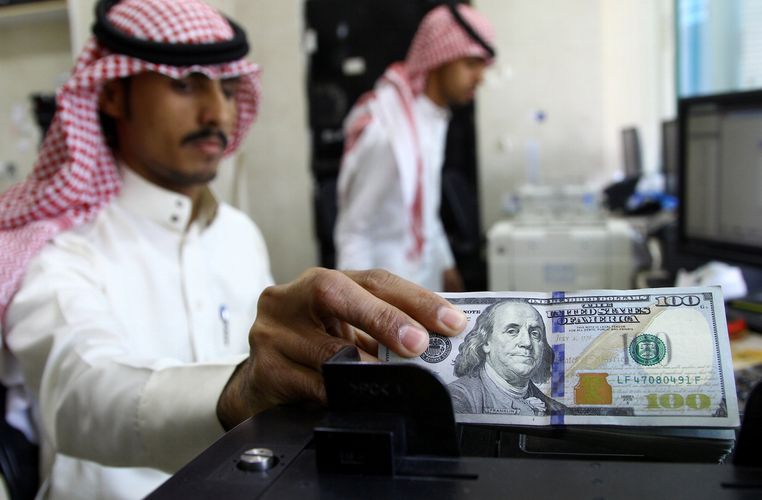
A Saudi money changer counts US banknotes at a currency exchange shop in Riyadh
It was supposed to be a showcase for Saudi Arabia and its vision for the future. But the murder of the journalist Jamal Khashoggi and subsequent boycott of the event by top executives were the main topics of conversation at this year’s Future Investment Initiative conference in Riyadh.
The big question on everyone’s minds was just how much of an impact the killing and its political fallout would have on Crown Prince Mohammed bin Salman’s grand plans to overhaul the kingdom’s oil-dependent economy – and whether investors would continue to finance his vast Vision 2030 project.
“This couldn’t have happened at a worse time for us,” said one senior person at the Public Investment Fund, the Saudi sovereign wealth fund overseeing many of the Vision 2030 plans. “We had been hoping to showcase our ambitions and talk about our projects, but it’s all been drowned out by what happened.”
Some investors were taken aback at the tone and language used by the crown prince at the conference. While MBS, as he is widely known, called the killing a “heinous crime that cannot be justified”, he also sought to frame the political fallout as part of an economic war against Saudi Arabia, adding that the kingdom would not be defeated.
That struck a discordant note with attendees.
“Things have totally changed,” said one private equity investor from Europe. “When I was here last year, the tone was very much business friendly. But their response to the killing and the aggressive rhetoric that we are hearing is very much making me think twice about anything we do here.”
The shift in sentiment towards the kingdom comes at a critical juncture. Banks and investors have been a vital supply of cash to the kingdom over the past two years, lending the government and PIF around US$80bn to help fund dozens of projects.
But much more money is needed. The PIF aims to grow its portfolio to US$600bn by 2020, double what it had a year ago. Banks are key to that growth: they are currently working on a loan of up to US$70bn for Aramco that will allow the PIF to monetise its stake in petrochemicals giant Sabic.
Several so-called gigaprojects will also need huge amounts of cash. Neom, the development of more than a dozen new towns and cities on the Red Sea coast that describes itself as “the world’s most ambitious project”, is expected to cost US$500bn alone. It’s just one of a long list of huge projects that are currently in progress.
FINAL STRAW
So far, banks have provided much of the capital that has gone into the projects – either through directly lending to the kingdom or PIF, or by underwriting bond deals. Banks have been keen to show their commitment, optimistic that a huge stream of fees linked to Vision 2030 are on the horizon.
But dealmaking has been far less lucrative than many hoped: fees are just US$250m so far this year, compared with US$390m at the peak in 2007. The concern at the FII last week was that the murder of Khashoggi may be the final straw for some. Growing reputational risks, the threat of sanctions against Saudi and disappointment on fees could lead to some pulling out.
“A lot of the banks have been frustrated by the pace of change – and the fact that many still aren’t earning enough money to cover the huge investment of resources they have made here,” said one financial consultant with many years of experience dealing with Saudi Arabia.
“Many have already started to think twice about their commitments to the kingdom, and the worry is that the events of the past few weeks will accelerate this process. I fear we may soon start to see some of the banks pulling out of the country to focus on better paid, less controversial work elsewhere.”
Without the support of foreign banks, the Saudi government will find it hard to fund Vision 2030. It is already borrowing heavily to fill a budget hole. With government spending – not including what the PIF is spending – growing at 25% a year, foreign capital will be essential to financing these projects.
For the moment, banks are – discreetly – showing their support for the kingdom. All the major banks sent delegations to the conference, despite a boycott by most c-suite executives. But that is easy. What will be much harder will be underwriting large deals under the public and political spotlight.
